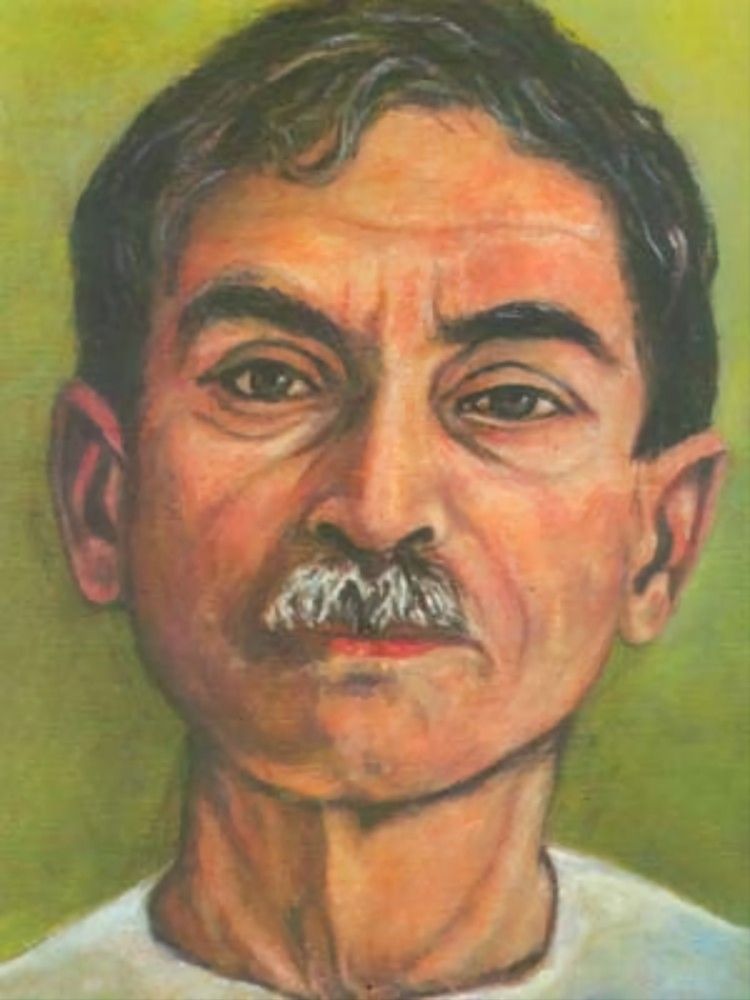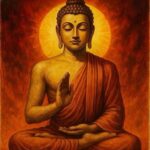👤 Introduction: Who Was Munshi Premchand Ji?
Munshi Premchand (मुंशी प्रेमचंद), born as Dhanpat Rai Srivastava, is considered one of the most significant writers in the history of Indian literature. A master storyteller, he gave voice to the common man, weaving together tales of poverty, social injustice, love, sacrifice, and nationalism in a language that resonated deeply with both elite and rural readers alike. He was honored with the title “Upanyas Samrat” (Emperor of Novels) for his unparalleled contributions to Hindi-Urdu fiction.
- 📜 Early Life and Background
- 📚 Education and Career
- ✍️ Literary Career: A Voice for the Voiceless
- 📖 Major Works
- 🕊️ Ideological Leanings and Social Views
- 💍 Personal Life
- 📆 Later Years and Death
- 🌍 Legacy and Impact
- 📌 Important Facts About Munshi Premchand Ji
- ❓ FAQs about Munshi Premchand Ji
- 🌟 Wishing Munshi Premchand Jayanti
- 🧠 Significance in Modern Society
- 🔚 Conclusion: Why Munshi Premchand Ji Still Matters
📜 Early Life and Background
Real Name: Dhanpat Rai Srivastava
Pen Names: Nawab Rai (initial), later Premchand
Date of Birth: 31 July 1880
Place of Birth: Lamhi village, near Varanasi, Uttar Pradesh, India
Father: Ajaib Rai (a postal clerk)
Mother: Anandi Devi
Caste: Kayastha
Language Proficiency: Hindi, Urdu, Persian, English
Premchand’s early life was marked by hardships. He lost his mother at the age of 8 and his father at 14. After being orphaned, he was raised by a stepmother and faced financial difficulties, which later reflected in the themes of his stories.
📚 Education and Career
Formal Education: He studied Persian and Urdu in a madrasa. Later, he earned a Bachelor of Arts degree.
Profession:
Started as a school teacher
Became a Deputy Inspector of Schools
Resigned to become a full-time writer and editor
Premchand’s work as a teacher and administrator helped him understand grassroots issues, further enriching the realism in his stories.
✍️ Literary Career: A Voice for the Voiceless
Premchand’s literary journey started in Urdu, writing under the pen name Nawab Rai. His early work, Soz-e-Watan (1907), which had patriotic themes, was banned by the British. From there, he transitioned to writing in Hindi and adopted the pen name Premchand.
🔑 Key Characteristics of His Writing:
Realistic portrayal of rural life
Strong social messages
Deep psychological insight
Blend of reformist ideals and empathy
📖 Major Works
Novels
Godaan (1936) – His magnum opus, about a poor peasant’s struggle.
Gaban (1931) – A tale of middle-class greed and redemption.
Karmabhoomi (1932) – On youth, politics, and non-violence.
Nirmala (1927) – Dowry system and women’s suffering.
Sevasadan (1918) – Focus on women’s dignity and morality.
Short Stories
Shatranj ke Khiladi (The Chess Players)
Poos ki Raat (A Winter Night)
Bade Bhai Sahab
Idgah – A boy’s selfless love for his grandmother
Kafan – A shocking story of apathy and poverty
Plays
Karbala
Sangram
Editorial Contributions
Edited Hans, a progressive literary magazine
Also edited Jagaran and contributed to Madhuri
🕊️ Ideological Leanings and Social Views
Premchand was deeply influenced by:
Gandhian ideals – non-violence, rural upliftment
Nationalism – though subtly embedded
Socialism – equality and justice
Humanism – belief in dignity for all
He critiqued:
Caste discrimination
Exploitation of farmers
Oppression of women
Colonial rule
Religious orthodoxy
He used his pen as a weapon for social reform, not just entertainment.
💍 Personal Life
First marriage (at age 15) was unsuccessful.
Second marriage to Shivrani Devi, a child widow, was happy and supportive.
He had 3 children, and Shivrani Devi later wrote a memoir about him titled Premchand Ghar Mein.
📆 Later Years and Death
In the last years of his life, Premchand faced:
Financial difficulties
Health issues (liver cirrhosis)
Struggles as a publisher with Hans
He passed away on 8 October 1936 in Varanasi at the age of 56, leaving behind an unmatched literary legacy.
🌍 Legacy and Impact
Considered the father of modern Hindi-Urdu fiction
Laid the foundation for social realism in Indian literature
His works are part of school and college curricula
Influenced writers like Phanishwar Nath Renu, Harivansh Rai Bachchan, Amrita Pritam
Several of his stories have been adapted into films and television, e.g., Shatranj ke Khiladi by Satyajit Ray
His birth anniversary is celebrated as “Premchand Jayanti”
📌 Important Facts About Munshi Premchand Ji
| Fact | Detail |
|---|---|
| Full Name | Dhanpat Rai Srivastava |
| Pen Name | Premchand |
| Other Pseudonym | Nawab Rai |
| Date of Birth | 31 July 1880 |
| Date of Death | 8 October 1936 |
| Language | Hindi, Urdu |
| First Story Collection | Soz-e-Watan (Urdu) |
| Most Famous Novel | Godaan |
| Profession | Writer, Teacher, Editor |
| Honored Title | Upanyas Samrat (Emperor of Novels) |
❓ FAQs about Munshi Premchand Ji
Q1. Why is Premchand Ji called “Upanyas Samrat”?
Because he pioneered realistic Hindi novels and was unmatched in his storytelling skills.
Q2. Was he involved in the freedom struggle?
Yes, indirectly. His writings supported nationalist ideas and social awakening.
Q3. What themes dominate his works?
Poverty, caste, gender injustice, nationalism, rural India, and human values.
Q4. Did he write in English?
No, but he knew English. He primarily wrote in Hindi and Urdu.
Q5. Where can one read his works?
His works are available in various Indian languages and English translations through publishers and online platforms.
🌟 Wishing Munshi Premchand Jayanti
“On the birth anniversary of Munshi Premchand Ji, we remember the pen that painted the soul of India. His stories still echo the truth of society and the strength of humanity. 🙏📖”
🧠 Significance in Modern Society
His literature offers timeless insight into rural and social issues.
Continues to inspire filmmakers, authors, and social thinkers.
His works act as a mirror to the society, urging introspection and reform.
Encourages language pride, especially in Hindi and Urdu.
Embodies the spirit of literary nationalism.
🔚 Conclusion: Why Munshi Premchand Ji Still Matters
Munshi Premchand was not merely a writer; he was a movement in himself. His empathy for the downtrodden, his courage to question norms, and his mastery over storytelling make him immortal in Indian consciousness. In a world increasingly distracted by surface-level narratives, Premchand’s deep, humane tales remind us of the power of literature to transform society.
“Munshi Premchand Ji didn’t just write stories – he gave the voiceless a voice, and the ignored a place in history.”








